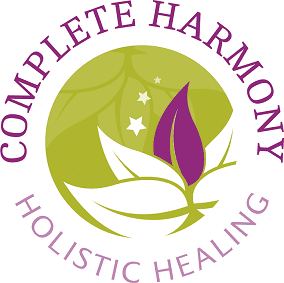For most of us, life is good although we may not always appreciate it.
If you think about it, every day there is so much to be grateful for 🙂
But when life throws us a curveball in the form of a challenging situation, it can be easy to forget all the good times. You may become consumed by this negative situation.
Feeling grateful will have positive effects on your health and well-being. It will help you to deal with challenges when they come up, help you to deal with them in positive and healthy ways.
One of the world’s leading authorities on gratitude, Dr Robert Emmons, has conducted several pieces of evidence-based research on the health benefits of feeling grateful.

When clients feel worried, stressed or anxious I suggest that they find ways of recognising things in their lives that they are thankful for. An amazing by-product of feeling grateful is that you will feel happier – now who doesn’t want that!
When you have an ‘attitude of gratitude’ you are naturally focusing on all the good things about your life.
Five ways to recognise gratitude
1. List 10 things in your life that you are grateful or thankful for
When you’re feeling low, use your list to remind yourself of all the good things, previous events and people in your life.
2. List 10 things about your work that you are grateful for
Many of us spend most of our waking hours at work, so it’s a good idea to have some positive feelings about it. Things such as having helpful colleagues, a pleasant environment, a good income, a place to have your first cup of coffee in the morning! Choose whatever makes your working day pleasant. When your day needs a boost you can read this list.
3. List 10 things about your personality and abilities that you are thankful for
It’s not always easy to think of positive things about yourself. If this is how you feel, think of all the positive ways a friend would describe you.

4. Start using a Gratitude Journal every day
Doing this will help you to regularly recognise and appreciate things in your life that you are grateful for.
5. Actions speak louder than words
Show gratitude to others by writing a letter of thanks or send a thank-you card to someone who has been kind to you. Also, instead of buying a thank you gift, show how grateful you are by spending time helping someone who has been kind to you.
Recognising and appreciating good things in our lives is a skill and like any other skill, it takes practice, commitment and consistency.
Spending just a couple of minutes each day listing the things in your life that you are grateful for will make a big difference to your mental and emotional health and wellbeing.
When it feels impossible
For some people, feelings of gratitude get lost in the busyness of their lives. Their days are spent just getting through one situation after another and they don’t always have the energy to stop and think about all the good things in their life. If this is you, a Calm and Clarity Hour with me could be just what you need.
These calls provide you with time to unravel your tangled thoughts and introduce calm. Your tailored sessions will be designed to help you get clarity on what support you need for your situation and then I will introduce you to skills and techniques that you can use to better manage your mindset and emotions when dealing with situations that are causing you to feel overwhelmed. By the end of your 60-minute Zoom call, you will have an action plan to move you forward with confidence.
Read more about these sessions here Calm and Clarity Hour.
Take a look at my book, Self-care for Busy Women. It’s full of hints, tips, checklists and trackers and will show you how spending just a few minutes each day focusing on your mental, emotional and physical health can have a big influence on your mindset and well-being. You’ll also be able to create your own 28-day self-care plan that fits seamlessly into your busy lifestyle.
About Sharon
 Sharon lives with her partner Geoff, in Warwickshire and they have two adult children. She worked for over 25 years in an office environment, gaining qualifications to degree level in finance, business and management. While there Sharon witnessed and experienced many stressful situations and suffered illnesses that were stress-related.
Sharon lives with her partner Geoff, in Warwickshire and they have two adult children. She worked for over 25 years in an office environment, gaining qualifications to degree level in finance, business and management. While there Sharon witnessed and experienced many stressful situations and suffered illnesses that were stress-related.
Sharon was advised to make some changes to her lifestyle which included trying complementary therapies. After experiencing the benefits of complementary treatments, Sharon decided to retrain. To share her knowledge and experiences to help others recognise and manage their own physical and emotional stress and anxiety levels.
If you would like to have a chat with Sharon to find out more about how she can help you get in touch here.




